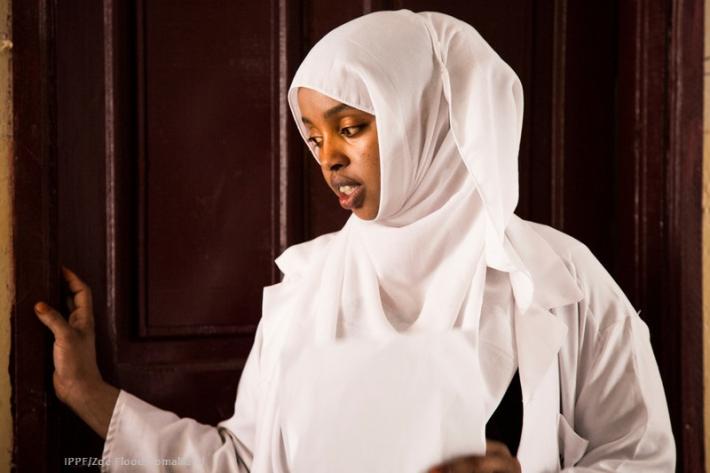By Nardos Hagos
23 May 2022. Today is the International Day to End Obstetric Fistula, which is being observed under theme 'Women’s Rights are Human Rights! End Fistula Now!'
Obstetric fistula is a hole between the birth canal and bladder and/or rectum caused by prolonged and obstructed labour. This condition affects approximately half a million women in Africa, Asia, the Middle East, Latin America, and the Caribbean. It is one of the most serious childbirth injury, leaving women and girls with incontinence, leaking urine, faeces, or both, and often leads to additional chronic medical problems. Tragically, according to UNFPA, 90 percent of girls and women who develop obstetric fistula will deliver a stillborn baby.
Despite being almost entirely preventable, its continued occurrence in the Global South is a demonstration of inequalities with regards to access to health and human rights of the most vulnerable girls and women of our communities.
The effects of obstetric fistula are not only limited to the physical body. Women and girls who experience this devastating injury often suffer from the social effects of being stigmatized and ostracized by family, friends and their wider social group. This is compounded by trauma, fear, and depression. The physical and social effects of fistula can also have economic impacts, as affected women have difficulty in finding employment, putting them at increased risk of deepened poverty.
IPPF and The Orchid Project believe in a multisectoral, human rights-based approach to addressing the sexual and reproductive health challenges that affect women and girls. This means viewing the sexual and reproductive health issues that women and girls face from a holistic perspective, rather than treating conditions individually.
“Some people are disadvantaged from the day they are born especially because of their gender. Girls are exposed to certain challenges compared to boys, which are likely to reduce opportunities for them in the future. Even with education, other challenges related to their biology can create setbacks in their progress.” Youth activist - Orchid Project Knowledge Sharing Workshop, Narok county, Kenya March 2022.
Therefore, a multisectoral approach that addresses the intersection of harmful practices such as Female Genital Mutilation/Cutting (FGM/C), child marriage, adolescent pregnancy, and institutional/systemic areas including access to effective and responsive health services, quality education, and addressing socioeconomic and gender inequity is required.
Studies have shown a link between Female Genital Mutilation/Cutting (FGM/C) and increased risk of obstetric fistula. The World Health Organisation (WHO) describes FGM/C as the partial or total removal of external female genitalia or other injury to the female genital organs for non-medical reasons. The risk of prolonged and obstructed labour that can lead to an obstetric fistula increases with the type of FGM/C that a girl or woman is subjected to and is most associated with Type III also known as infibulation. In many instances, FGM/C is a precursor to other harmful practices such as child marriage and adolescent pregnancy, meaning that subjecting a girl to the practice compounds her risk of fistula and its accompanying negative physical, social, and psychosocial effects.
“As misfortunes continue to happen to a person, the more hopeless they become. Women who have been cut, married early, and with many children may end up giving up on pursuing their purpose in life completely.” End FGM/C activist - Youth activist - Orchid Project Knowledge Sharing Workshop, Narok county, Kenya March 2022
Working on prevention is crucial, however there are millions of women and girls around the world who are impacted by harmful practices and suffer from their long-term effects. Currently, half a million women and girls are affected by obstetric fistula, and an estimated 200 million women and girls alive today have been subjected to FGM/C. Supporting survivors of fistula, FGM/C and other sexual and reproductive health barriers with appropriate medical, social, and mental health support is vital towards ensuring they, too, are able live full healthy lives.
Some organizations are involved in supporting survivors of obstetric fistula. One such organization is the Hamlin Fistula Ethiopia, which is a world-class centre of excellence for treating obstetric fistula patients and training obstetricians to specialise in this surgery. Rehabilitation programs assist former patients to reintegrate to village life. The organisation also has a preventative strategy that aims to eradicate obstetric fistula from Ethiopia by providing trained midwives in the rural regions of the country. Another organization, Fistula Foundation supports fistula treatment in several countries in Africa. By partnering with carefully selected doctors and hospitals, Fistula Foundation ensures that their medical teams provide high-quality repair surgery in areas with the greatest need for treatment. Through partnerships with various stakeholders, AMREF Health in Africa Kenya uses evidence-based approaches to end fistula by strengthening the capacity of health systems to improve access to equitable maternal and sexual reproductive health services.
On this international day to end obstetric fistula, IPPF and The Orchid Project remain committed to uphold the human rights of everyone affected by harmful practices endangering the lives of millions of women and girls worldwide.
"We strongly believe that it is possible to reach Sustainable Development Goal [SDG] Goal 5. But gender equality is not a standalone agenda [;] it is correlated with other issues" Orchid Project survey respondent, Bangladesh, June 2021.
We believe that women’s rights are human rights and fistula must end now!
Nardos Hagos is Policy and Advocacy Manager, Orchid Project
About Orchid Project About IPPF Africa Region (IPPFAR)
For more updates on our work, follow IPPF Africa Region on Facebook, Twitter, Instagram and You Tube.
when












